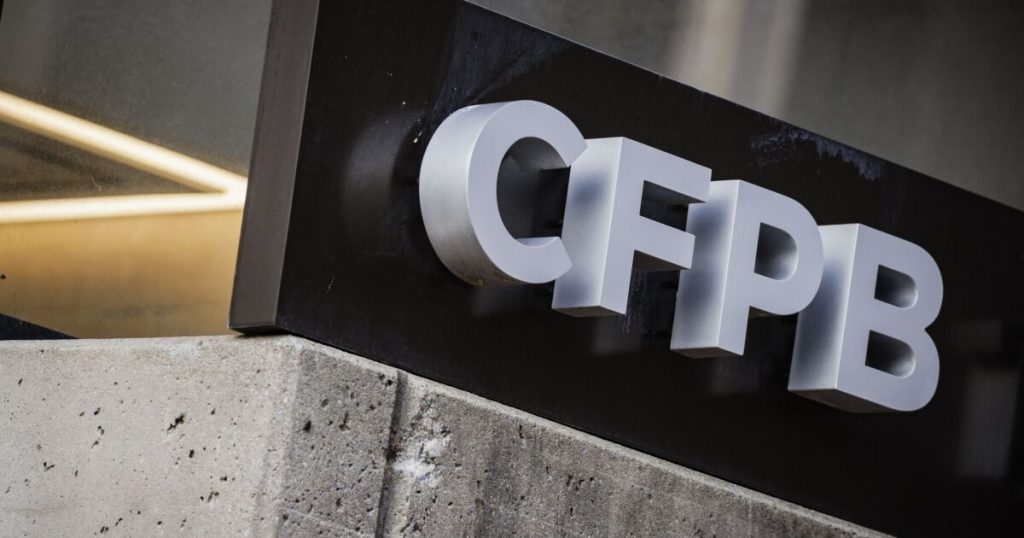Samuel Corum/Bloomberg
Economic issues are among the drivers in this year’s election, with complaints about inflation and boasts about job creation and growth. But one kitchen-table issue that has drawn little attention is economic justice and the parties’ different views of it. Those approaches are crystallized by conservative attacks on the
Congress created the CFPB to prevent another Great Recession, in which millions of Americans lost jobs, homes or their savings. The Great Recession was caused in part by consumer protection failures, and the CFPB has taken many steps to prevent those consumer protection failures from recurring.
But that hasn’t stopped the Heritage Foundation’s Project 2025 from calling for the elimination of both the agency and its rules, presumably including the rules adopted to forestall another Great Recession. And while former President Trump simultaneously professes ignorance of Project 2025 and to oppose many of its proposals, we can predict what he might do with the CFPB in a second term from what he did in his first term: put a person who called the Bureau
Several recent episodes illustrate the CFPB’s economic justice crusade. Economic justice, at its core, is about fair treatment, and so Congress gave the CFPB the power to prohibit unfair practices. Nearly all of us think of discrimination as unfair. But no federal law says in so many words that banks can’t refuse to open bank accounts because, say, a customer is a woman or Jewish. When the CFPB in 2022 tried to remedy this by using its unfairness powers to declare discrimination unfair, Republicans objected. The Chamber of Commerce and banking trade groups sued (though they tout their diversity efforts), and a Trump-nominated judge
Here’s another example: Earlier this year, the CFPB proclaimed that credit card issuers must either limit credit card late fees to essentially what late payments cost them, which the agency estimated at eight dollars, or show that a reasonable late fee is more than eight dollars. Republican members of Congress responded angrily as banks argued that not just banks, but consumers would be better off if consumers pay higher late fees. How often do you feel your life would be improved if only you were charged more?
The CFPB has returned more than $20 billion to injured Americans while also protecting consumers from abusive debt collectors, deception and unfair credit reporting, things which can cost consumers quite a bit of aggravation and money. And that’s only a few examples.
In contrast, during the Trump years, the CFPB dropped a case it had brought under the Obama administration in which a lender had charged consumers as much as 950% interest a year. President Trump himself blocked a rule from going into effect that would have given consumers the ability to sue misbehaving lenders.
Polls show that the CFPB is extremely popular, even among Republican voters. So why are Republican politicians so quick to attack it? One answer is that the politicians believe that the free market provides better consumer protection than the government.
But a cynic might point to something else. Republican politicians can ignore how voters feel about consumer protection if voters don’t consider consumer protection in casting their ballots. At the same time, the financial industry makes substantial contributions to politicians. The result is that politicians benefit from taking positions that harm their constituents but bring in money without costing them votes. Ironically, Republican politicians complain that the CFPB is not accountable, but voters don’t hold them accountable for their opposition to the CFPB.
Inflation definitely matters. But so does economic justice. Perhaps even more so because when businesses get away with cheating consumers, it can undermine trust in the economy’s fairness. The country is better off with an agency that protects against economic injustice.

